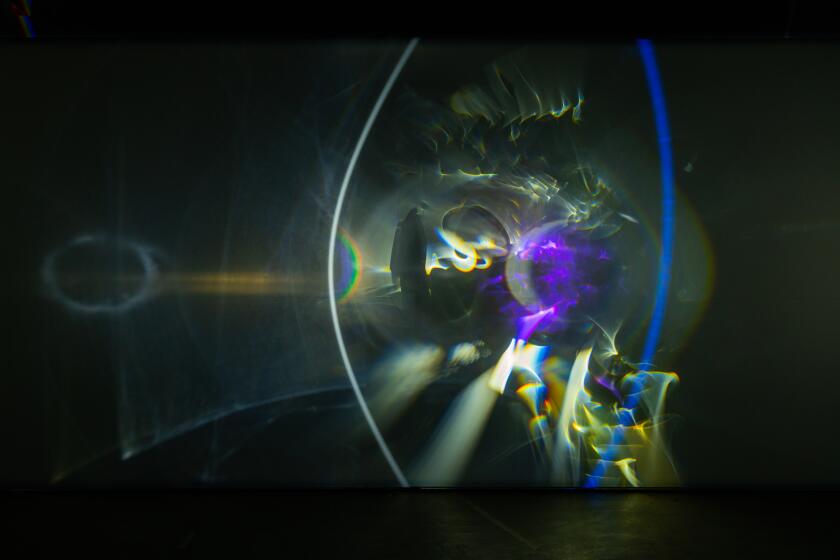Soprano Neblett Turns Up Volume, Can’t Mask Faults
Each year, as an embellishment to its regular opera season, San Diego Opera offers a handful of solo recitals. Unlike opera productions, these programs represent more of a gamble for the music patron because they rely on the talent of a single performer.
On a lucky night in February, 1988, for example, local opera buffs were rewarded with the sophisticated, polished artistry of Swedish baritone Hakan Hagegard. At Sunday night’s Sherwood Auditorium recital by soprano Carol Neblett, however, lady luck was not smiling.
Having made an auspicious Metropolitan Opera debut 10 years ago, Neblett should be at the acme of her career. But, judging from the evidence of Sunday’s recital and her solo role in San Diego Opera’s Verdi Requiem last season, this diva is experiencing vocal mid-life crisis.
To compensate for a host of problems--unreliable vocal production, shortness of breath, an annoying vocal wobble--Neblett simply cranked up the volume and emoted to beat the band. By comparison, Shakespeare’s Lady Macbeth is positively catatonic.
A few times during her program, Neblett aptly fused her emotional excesses with the demands of the music, notably in Massenet’s fevered aria “Pleurez, pleurez mes yeux,” from “Le Cid,” and in the despairing “My Man’s Gone Now” from Gershwin’s “Porgy and Bess.”
But her opening German-language songs by Mozart were unstylishly melodramatic; Faure’s evanescent “Apres un reve” has rarely been given such a loud, coarse treatment, and Ravel’s “Vocalise” received little more than an approximation of its sinuous vocal line.
Neblett’s most serious undertaking was a neo-Romantic song cycle by Thomas Pasatieri, who also served as the soprano’s accompanist. Pasatieri’s “Sieben Lehmannlieder,” a fairly recent setting of seven poems by the late Lotte Lehmann, proved agreeable and pleasantly eclectic, filled with the discreet echoes of Poulenc, Wolf and Mahler.
Like his fellow American composer Samuel Barber, Pasatieri knows how to craft a melody that is inherently sympathetic to the voice. Pasatieri played Mozart and his own compositions fluently, but in the Massanet aria, his misreading of the score made Neblett’s work even harder.
The program’s penultimate piece was Pasatieri’s satirical song “Vocal Modesty,” which begins with the line “I just love my voice.” It may be quite possible to love Neblett’s grand, dramatic vocal instrument. But the manner is which she now uses it is downright painful.
More to Read
The biggest entertainment stories
Get our big stories about Hollywood, film, television, music, arts, culture and more right in your inbox as soon as they publish.
You may occasionally receive promotional content from the Los Angeles Times.









